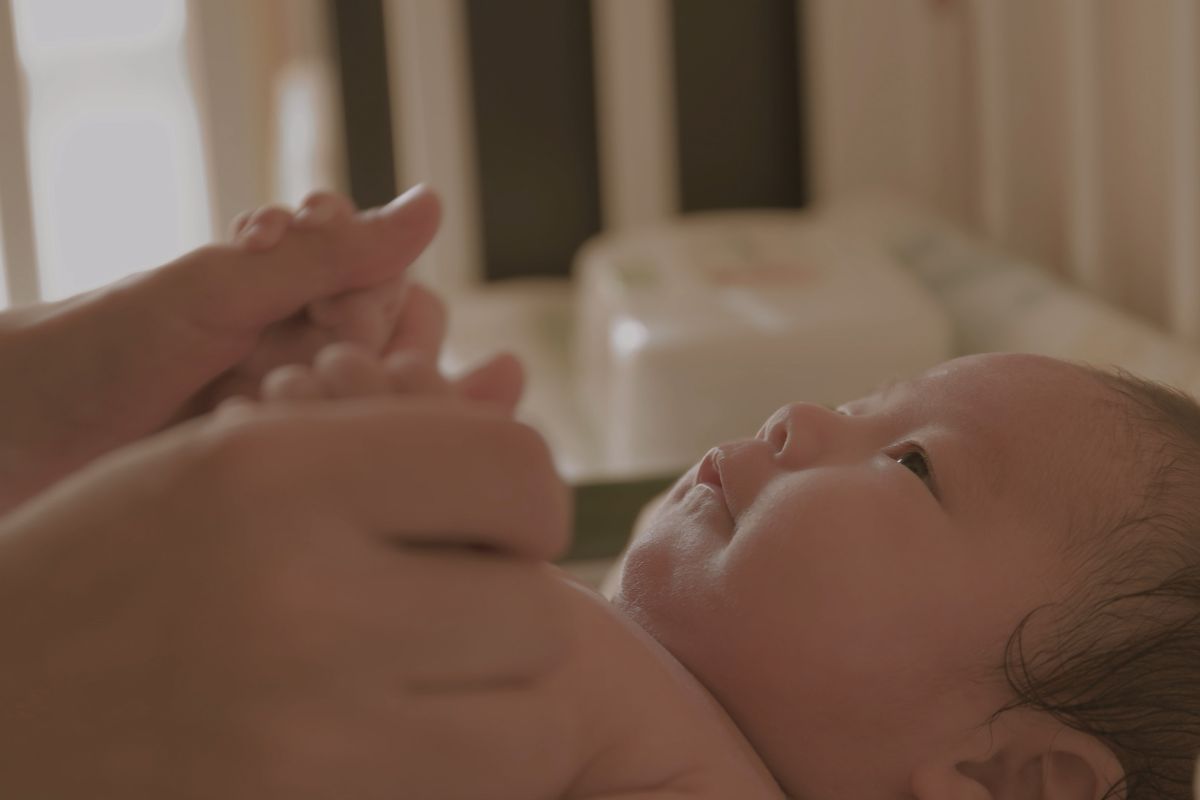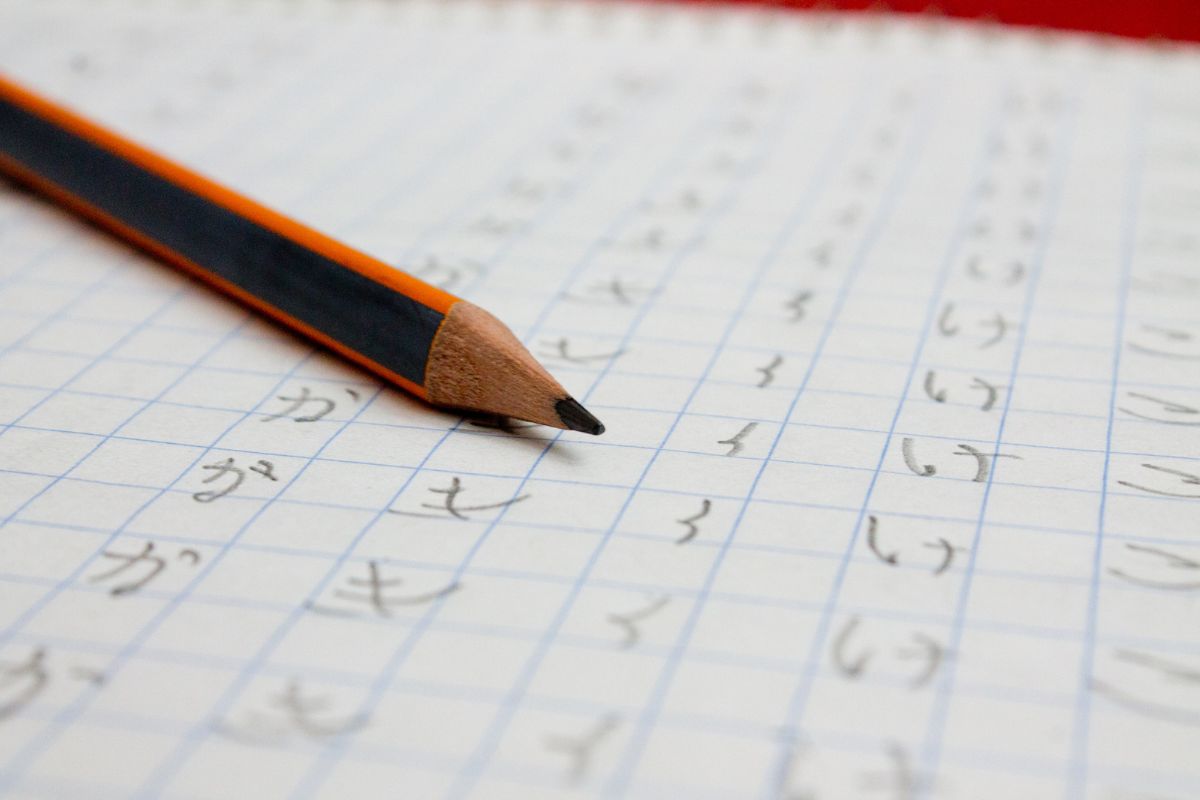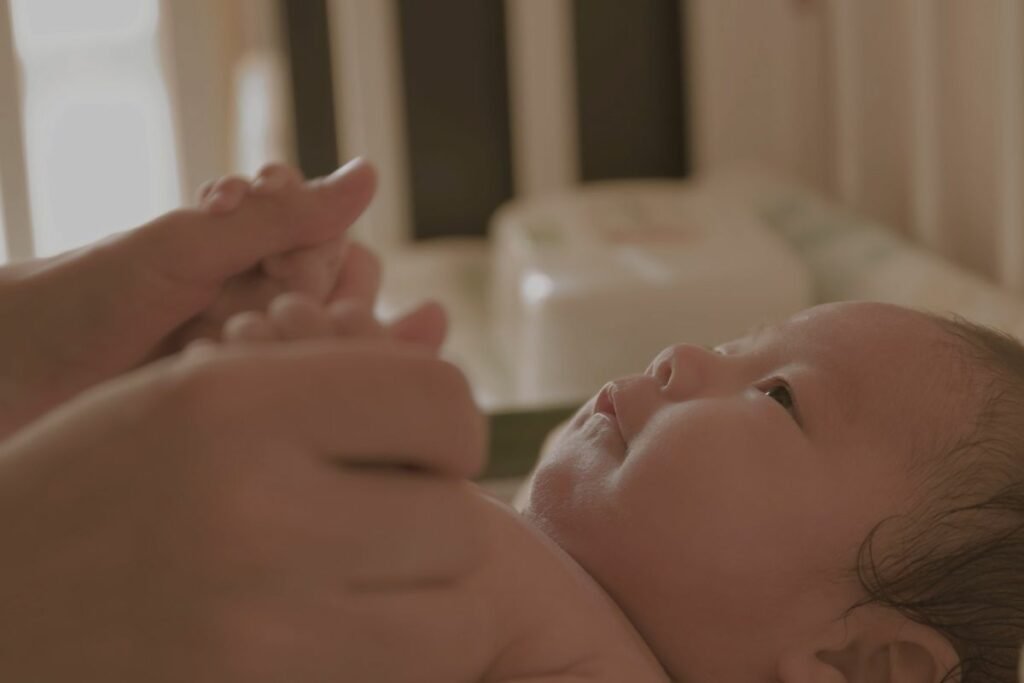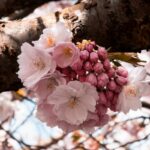Are you considering using a Japanese unisex name for your baby? Maybe you want to find a unique name and are looking for inspiration? Or are you curious about Japanese unisex names and want to know more?
No matter the reason that brought you here today, we have the answers for you!

Finding a beautiful Japanese unisex name can be tricky, especially if you don’t have much experience with Japanese names. You head online for some guidance but are met with page after page of confusing and conflicting information.
Frustrated and disappointed, you are left unsure where to turn or who to trust. How will you find a beautiful unisex name for your baby now?
Well, you can turn to us! Today we are here with the answers that you need! Keep reading to see a whopping 74 beautiful Japanese unisex names and their meanings.
We have a complete guide today to help you find a new name and show you what should be considered when choosing a name for your child.
Let’s not waste a second more and dive into the article now!
74 Japanese Unisex Names And Meanings
Let’s dive straight into it! Below we have a list of 74 Japanese unisex names and their meanings. The names are all written in English, along with their meanings.
The spelling of them will vary depending if you choose to write the name in Kanji or Japanese, with many parents choosing to change the characters, giving their children a unique name.
Let’s take a look at these unisex names now to see if any catch your eye!
- Tsukasa – meaning an official position, to manage, and responsibility. It can also mean mound or small hill.
- Chihiro – meaning a thousand questions.
- Shinobu – meaning endurance and patience.
- Kaoru – meaning a positive influence on people.
- Ryo– meaning cheerful, cool, neat, and tidy.
- Haruki – meaning the child born in Spring, Spring, and kind.
- Umi – meaning the sea and mother.
- Jun – meaning pure.
- Yu – meaning kind.
- Midori – meaning healthy, growing, or green.
- Sora – meaning big-hearted like the sky and kind.
- Hikari – meaning light.
- Aoi – meaning a fruitful plant and family.
- Asahi – meaning the rising sun or morning.
- Ao – meaning lush plants that stretch out.
- Asuka – meaning birds flying in the sky, or wanting to fly free like a bird.
- Izumi – meaning stream or hidden possibilities.
- Itsuki – meaning a tree whose roots will continue to grow and spread leaves for years. It can also mean wanting to grow as tall as a Taiki.
- Ibuki – meaning being as big as Ibukiyama, breath, and liveliness, or an image of a lively future.
- Umi – meaning a child with a deep heart and love of the sea (spelled differently to the earlier entry of Umi).
- Enon – meaning a desire to live with freedom and rich sensibility. It can also mean sound, wanting others to be entertained and healed through music.
- Oto – meaning to be blessed with arts, music, and other cultures. They might also be someone who heals and entertains with music.
- Kazuki – meaning a tree whose roots grow on leaves over the years. It can also mean the sun and a calm state.
- Kizuna – meaning something that holds others or appreciates meeting people.
- Kiyo – meaning clean, being a calm person with a pure heart, and good intentions.
- Kuni – meaning our country and the love of it or becoming an international person.
- Kei – meaning pure and precious or having the power to call.
- Jing – meaning reminiscent of majestic scenery.
- Megumi – meaning honesty and compassion.
- Kohaku – meaning a powerful stone or being lucky and rich.
- Saku – meaning the condition and result of growing plants by hand or being someone who can make a steady effort.
- Jun – meaning names with a desire to be spiritually and physically good. It can also mean wanting to be treated honestly and loved by others.
- Subaru – meaning one of the Taurus constellations. It is also the symbol of the King and reflects a nobly shining person.
- Sena – meaning a shallow spot or steep flow where you can walk across a river. It also means having the strength to confront difficulties.
- Sora – meaning the freshness and size of the sky.
- Tamaki – meaning there is no end or form of the wheel or building a circle of people and having no relationship troubles.
- Chikage – meaning you can see various landscapes through experience.
- Tsubasa – meaning wings and beautiful things that protect and proportion. It also means that you want to fly.
- Tomo – meaning a friend or the desire to have good friends.
- Nao – meaning an honest and straight person who is respected by others.
- Nagi – meaning a peaceful life and that winds or waves are not an issue.
- Nagisa – meaning the water’s edge, the beach, growing up to be a cheerful and active child.
- Natsuki – meaning summer and thriving during the summer. It can also mean being born during the summer.
- Noa – meaning the boy abroad, is reminiscent of Noah’s Ark.
- Haru – means warm spring, brightness, and is often given to children born during the spring.
- Hikaru – meaning a bright light and having a life with brightness and hope.
- Hinata – meaning a place where the sun shines and a bright and cheerful image.
- Homare – meaning enjoyment and honor or someone recognized by society.
- Mao – meaning the middle, wanting to live straight.
- Makoto – meaning true, central, and wanting to be honest and do the right thing.
- Mizuki – meaning vividly alive.
- Rui – meaning a treasure to bestow on others.
- Mitsuki – meaning to be full of hope and live a life full of hope.
- Mirai – meaning we are proceeding to the future.
- Mutsuki – meaning the lunar month of January, usually given to children born during January.
- Yu – meaning a kind and elegant child.
- Yu – meaning bound by feelings and proceeding (spelled differently in Kanji to the previous entry).
- Yuuki – meaning a child with hope.
- Yuki – meaning to grow up with hope.
- Yu – meaning to be a calm and relaxed person, helping others and caring.
- Yori – meaning a desire to be someone that others can rely on.
- Rion – meaning making people feel relieved or entertaining others with music and healing.
- Ritsu – meaning someone with their intentions and disciplines.
- Ryo -meaning wanting to grow into an intelligent and cool child.
- Aya – meaning a product of beauty and delicacy.
- Rio – meaning making others feel relieved or valuing the connections with others.
- Akari – meaning brightness or light.
- Hayami – meaning rare beauty.
- Masa– meaning true or just.
- Toshiro – meaning intelligent or talented.
- Yamato – meaning old Japan.
- Yoshi – meaning quiet or silent.
- Yu – meaning superiority or tenderness.
- Yukio – meaning fortunate or happy

What To Consider When Choosing A Japanese Name
There are a few things that you should consider when choosing a Japanese name for your baby. To help you see what to pay attention to and what factors to consider, we have compiled a brief guide for you to follow.
Check it out now to see what you should consider when choosing a Japanese name!
Meaning
First, you want to consider the meaning of the name. As you have seen from our list, there are so many names to choose from, all with beautiful meanings. Spend some time looking through the meanings to help find one that best suits your child.
As some of the names have several meanings, you will want to look at each meaning carefully before deciding on a name for your child.
Distinction
Distinction is another important factor to consider when naming your child. You want your baby to have a distinct name, after all, there is nothing worse than being in a class with five children all with the same name!
Ideally, you want a name that is distinctive, but not so unique that they will be mocked for the name. Look for one that is a little different from others, but not overly different, it is a balancing act!
We recommend looking at the lists of the most popular names from the year before or the current year. This helps to show you what is popular and what you should avoid if you want to give your child a distinctive name.
Length And Spelling
You also want to consider the length and spelling of the name. Growing up, your child will need to spell the name, and you don’t want it to be too difficult for them. Look for a name that isn’t too complicated to spell and one that isn’t too long either!
Long names are usually shortened down to a nickname, but you don’t want your child to run out of room on forms filling in their name! The length of the name should also be considered in Kanji characters as well as in English.
If your child will be using the name in both languages, you want to make sure it is easy enough to spell and write in them. Otherwise, you might find that they struggle or stop writing their name in one language entirely.
Religion
Another factor to consider when choosing your child’s name is religion. If you want to choose a name that relates to your religion or holy people, we recommend opting for a spiritual name. It is a fitting way to pay tribute to your religion without being too obvious.
When using religious names, be sure to check all the meanings of the names. You don’t want to give your child a name based on your religion to find out that it has a different meaning to other people!
Thankfully, with the power of the internet, you can easily see if the name you choose has any negative connotations or not.
Even if the name was popular before and held great religious significance, it might have fallen out of use or have negative connotations now, so do your research to avoid your child growing up with an inappropriate name!
Why Do Parents Choose Unisex Japanese Names For Their Children?
In Japan, it is popular for baby names to have a name connected to nature or for it to have meanings that reflect culture and family.
These names are often linked to their literal meanings, so it is easy to tell from the name its meaning and what has been chosen.
And based on the characters used in Japanese and Kanji, it can be easy to tell from a name the gender, as the language is gendered. We have more on this later!
Unisex names or gender-neutral names can be used for baby boys and girls (for some cute Japanese flower names for girls, check out our guide here). So why are they chosen? Well, there are several reasons. It could be to choose a distinctive name, a fresh name, or one the parents think is cute.
It might also be because they want to give their child a genderless name.
This could be because they don’t want to reveal the child’s sex before birth or it might be to avoid any gender stereotyping. With a gender-neutral name, it does not bind your baby to one gender from birth, allowing them to explore their gender as they grow.
Some parents will just prefer the sound of a gender-neutral name and choose one for that reason only. Others might be using a family name or a spiritual name, or any name that they enjoy.
It is hard to pinpoint an exact reason, but as time evolves, so does the naming of a child gender-neutral or unisex names are becoming more popular, both inside and outside of Japan.
Final Thoughts
And there you have it, everything you need to know about Japanese unisex names. We have shared an impressive list of 74 beautiful Japanese unisex names for you to choose from, but this is by no means an exhaustive list!
We have tried to include some of the most popular unisex names, along with some distinctive names to help you pick a name that is perfect for your child.
Whether you want a name that references nature, traits you hope your child will have, or a unique and distinctive name, we hope you have found what you are looking for today.
Don’t forget to use our guide to see what to consider when choosing your child’s name and stick around to see us answer your last-minute questions below!
Frequently Asked Questions
Before you leave us today, be sure to check out our brief FAQ section to get the answers to your last-minute questions!
Mami is a name that was popular during the 1940s and 1970s but has since become quite rare. It does not have one fixed meaning, with the Kanji combinations used giving it several meanings.
These meanings include ten thousand, genuine, see, love, and real. The unisex status of the name means that the feminine and masculine attributes are not applicable, which is probably why it has fallen into disuse.
There are ten most common unisex names in Japan, here is a list of them now:
1. Akari – meaning brightness or light.
2. Chihiro – meaning abundance or thousand.
3. Hayami – meaning rare beauty.
4. Masa – meaning true or just.
5. Toshiro – meaning intelligent or talented.
6. Tsukasa – meaning small hill or mound.
7. Yamato – meaning old Japan.
8. Yoshi – meaning quiet or silent.
9. Yu – meaning superiority or tenderness.
10. Yukio – meaning fortunate or happy.
While these names are the most common, they still offer a beautiful name for your child. The meanings of them are all fitting to name a newborn and can be used as inspiration.
If you want a more unique name, be sure to check out our list above for 74 beautiful unisex names that you could use for your child!
No, not all names in Japanese are unisex. Most names tend to be gender specific. There are a small number of names that are unisex, non-binary, or gender-neutral. You can check them out in our list in the above article.
There are certain patterns in Japanese names that will help tell you if a name is gendered or not.
Names that end with ‘-ro’, ‘-shi,’ -ya,’ or, -o,- are usually male first names. Names that end with ‘-ko,’ -mi,’ ‘-e,’ and, ‘-yo,- tend to be used for females.
Some names are pronounced the same way but have different meanings in their Kanji characters. That is why you will see some names entered multiple times in our list today.
Each name might look and sound the same, but the characters will offer different meanings!
There are also different writing systems, which means that a name translated into the Latin alphabet might have multiple meanings depending on the system used.
Before deciding which name to use, it is always best to do your research thoroughly and check all possible meanings before making your decision.
It varies! In most cases, you can recognize gender when you read the name because of the patterns we see in Kanji. But there are still times when some of them can be used interchangeably.
A good example of this is Kaoru. The Kanji symbol commonly used for Kaoru can be used for both sexes, so you might not know the gender of the person until you meet them face to face.
Another example is names ending in ‘mi.’ The character mi in Kanji means beauty and is often given to female names.
However, it is also used in Akemi and Naomi which can be given to males as they are written differently in Kanji.
While you can sometimes spot male or female names easily, the different characters and multiple meanings can make it difficult.
Yes! Unisex names are becoming increasingly popular in Japan, with many celebrities sporting gender-neutral names. Celebrities like Jun Matsumoto, Hikaru Utada, and Izumi Sakai all have unisex names.
Unisex names are creeping up in popularity across the world too, with many parents opting to give their child a name that has no link to their gender at birth.









